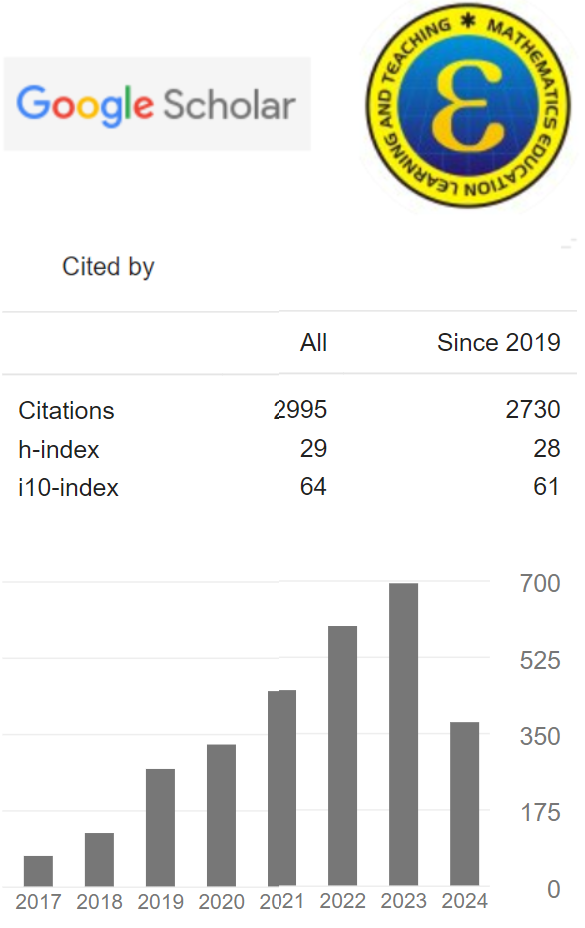PROBLEM BASED LEARNING DENGAN STRATEGI KONFLIK KOGNITIF MENINGKATKAN KEMAMPUAN BERPIKIR KRITIS MATEMATIS
(1)
(*) Corresponding Author
Abstract
The purpose of this research is to produce valid mathematical learning devices, learning the practical implementation and effective learning. This type of research is the development of a modified model of Plomp, with four phases without including the implementation phase after phase of testing, evaluation, and revision. The effectiveness of learning is obtained by performing the test on the population of students of MTs Darul Masholeh Cirebon by selecting a sample of VIII A grade as class treatment by purposive sampling technique. Results of software development: 1) a valid learning device: With a maximum score of 5.00 was obtained syllabus with an average score of 4.26 (very good); RPP with a score of 4.23 (very good); LKS with a score of 4.14 (good); Textbook students with a score of 4.15 (good); and TKBK with a score of 4.28 (very good); 2) practical learning tools, namely: a) applicability device during the learning process has an average of 4.26 (very good), b) the positive student response to average 4.01 (good); 3) Learning effective, namely: a) The ability to think critically mathematical students completed, either individually with an average value of 76.88 and classical ≥ 85%; b) the positive influence the character of independence and activity of critical thinking ability of students to mathematical students of 81.7%; c) The average difference between the mathematical critical thinking skills of students whose learning using PBL with cognitive conflict strategy with conventional learning students; and d) An increase in the value of critical thinking skills mathematically.
Â
Keywords: Problem Based Learning (PBL), Cognitive Conflict Strategy, Critical Thinking, Independence, Valid, Practical, Effective.
Keywords
Full Text:
PDFDOI: 10.24235/eduma.v7i1.2887
Article Metrics
Abstract view : 405 timesPDF - 257 times
Refbacks
- There are currently no refbacks.
Copyright (c) 2022 Eduma : Mathematics Education Learning and Teaching


.png)










